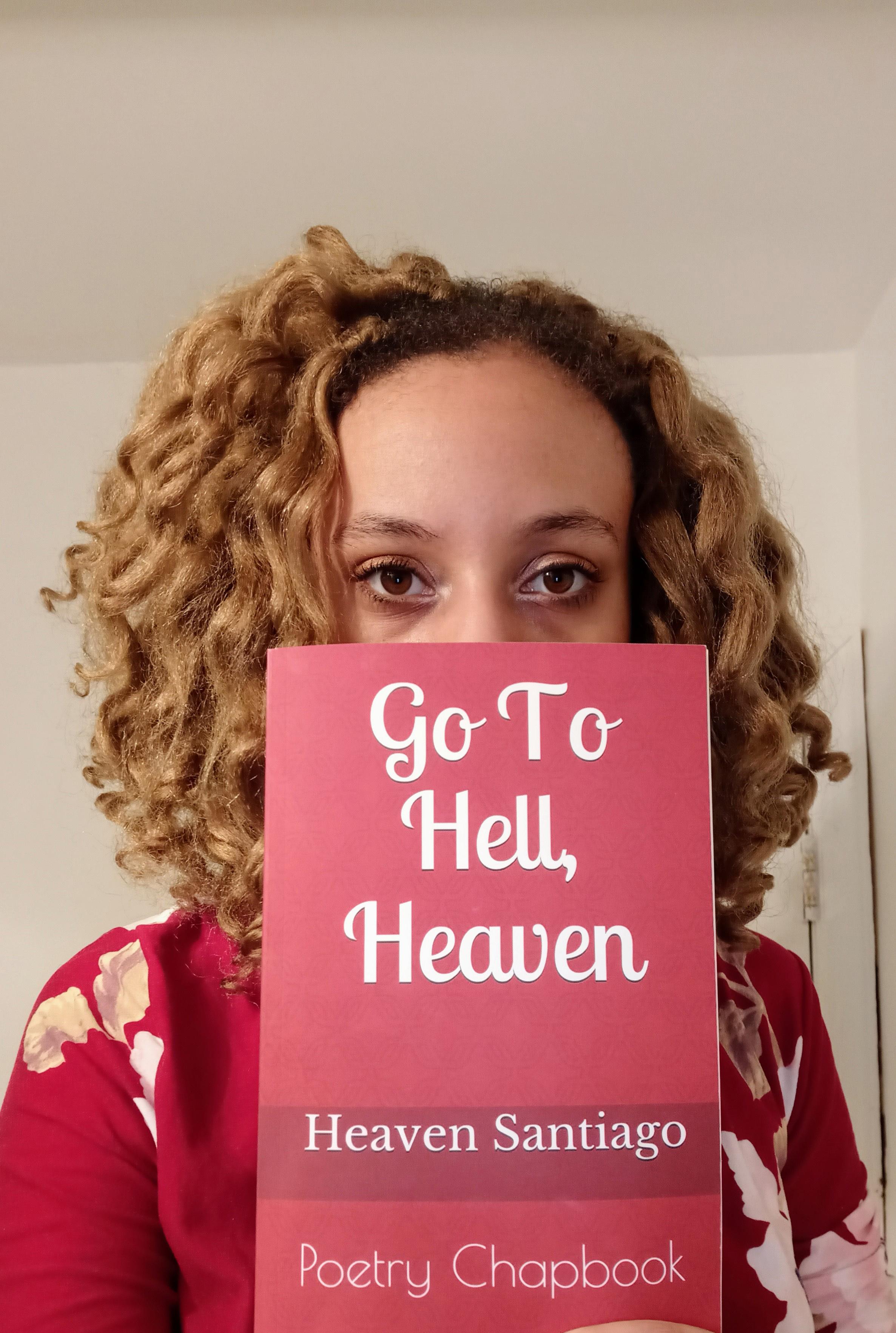SUNY Oswego student Heaven Santiago’s first book of poetry, “Go to Hell, Heaven,” presents a journey through a lot of troubled times but ultimately tells a tale of resiliency.
The junior double major in journalism and creative writing from Brooklyn has been writing since high school but “I kind of just kept it to myself, so I didn't really think anything of it,” Santiago said. “I listen to music a lot, so I would write just poems, and then I used it mostly as an outlet to express my emotions.”
Writings from throughout that time fill the chapbook of 22 poems, which is full of emotional topics, some from the challenges of the past year and some from longer-lasting pain.
“I’m always smiling but it has some themes of grief, heartbreak, love, depression and self-esteem,” Santiago explained. “There’s also a theme of being a first-generation student.”
The latter theme comes up in “Miracles,” as Santiago discusses breaking the chain of pain, ending with encouragement to others in her shoes: “Hold close to the ones that/love and support you/I’m here to remind you/You’re a miracle.”
As one might expect with a collection called “Heaven and Hell,” Santiago explores religion and spirituality in poems like the two-part “Alright, Almighty” which blends prayer with exploration. The three-part “Dear R.J.,” meanwhile, is among the poems probing lingering feelings about lost love.
Struggles and inspiration
Poems like “Submerged,” “Paranoid” and “Not Secure” involve mental health, self-loathing and the fight to overcome internal struggles.
“Unit 402” tells the story of 2017, which she calls the worst year of her life, but it’s followed by the more uplifting “High School Valedictorian Speech,” encouraging classmates “you should fear nothing” and that “You will adjust/You will adapt/You will overcome.”
“After the Aftermath” tells a story of recovering from a broken heart: “My heartbreak became daybreak/I grow strength and resilience.”
And through all the tales of struggles, grief and heartbreak, this resilience keeps coming back to the surface. She closes with “They Say,” a haiku that reads: “Go to Hell, Heaven/Sorry I did not descend/I have a purpose.”
While Santiago has previously published in the college’s Great Lake Review, publishing a book meant a big leap of faith. It meant stepping out of her comfort zone, which made her nervous, but she is happy with the final product.
Writing a book wasn’t something she planned on doing for several years at least, but in the previous year of uncertainty and struggles, she decided this could be a positive accomplishment. She found the process of submitting to Amazon surprisingly easy, and set to work selecting and organizing her poems.
“Go To Hell, Heaven” is available online via Amazon in paperback and Kindle formats, and via Barnes and Noble online in paperback.




